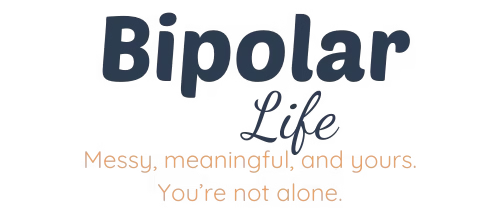Being Bipolar Online: The Good, the Bad, and the Unfollow
Online, victories tend to be loud—highlight reels, big announcements, neatly packaged transformations. But when you’re living with bipolar disorder, many of the biggest wins happen quietly. They’re the decisions no one sees, the emotional regulation no one applauds, the exhausting inner work that doesn’t trend. Even the big victories can feel muted—because you’re afraid to share, afraid of being judged, misunderstood, or seen as “too much” or “too well” to still be struggling.
This post is a celebration of those small victories. Not the kind that rack up likes, but the kind that build resilience. These wins are sometimes daily—like getting out of bed or responding with calm instead of chaos—and other times, they take months or even years to achieve. Because being bipolar online (and offline) means showing up in ways that might not look remarkable—but are deeply meaningful. Let’s talk about the hidden wins, the emotional labor, and the progress we don’t always track—but should.
Hidden Wins
Not every win is a photo-worthy moment. You don’t think anyone will celebrate your photo of you in PJs, in the kitchen, just proving that you got out of bed for the first time in three days (bathroom breaks don’t count). Sometimes, it’s texting a friend back after days of silence. Other times, it’s recognizing you’re spiraling and choosing to pause instead of react. These aren’t things most people will ever see—or understand—but they matter deeply. They’re moments of self-awareness, of healing, of choosing something different than what your disorder may have once dictated.
Hidden wins don’t come with applause. You won’t get notifications or gold stars for avoiding a trigger or sticking to your medication schedule. But these are the bricks in the foundation of stability. The rewards are better—and more permanent—but very few will notice them. They build a quieter kind of strength that lasts longer than likes or comments. They’re proof that you’re doing the work—even if no one else sees it.
Regulated Emotions
One of the most underrated skills in bipolar recovery is learning to regulate your emotions. It sounds simple—stay calm, think rationally, respond thoughtfully—but in reality, it can be incredibly difficult. When your mood is swinging or your nervous system is overactivated, regulation can feel like trying to hold back a tidal wave with a paper cup.
And yet, sometimes you do it. You pause before snapping. You cry without spiraling. You recognize that the irritation isn’t really about what just happened. These moments often go unnoticed by others, but they are major internal victories. And emotional regulation doesn’t even have to happen in the moment to count. Sometimes it’s choosing not to sit in that emotion for hours—letting the anger pass, releasing the hurt before it hardens into something deeper or more destructive. Emotional regulation isn’t flashy, but it’s powerful. It’s proof that you’re building strength from the inside out.
Internal Effort
What the world sees is often just the surface. Online, it’s easy to assume someone is doing well—or doing nothing—based on what they post or don’t. The words we use can hide so much: a cheerful caption can mask exhaustion, a silence can hold a thousand internal battles. But what people rarely see is the mental work happening underneath: the inner conversations, the self-coaching, the coping tools being quietly put into place.
Internal effort can mean talking yourself down from a thought spiral, challenging old beliefs, or choosing not to react to a comment that would have triggered you in the past. It can also mean resisting the urge to withdraw completely—a pattern made even easier by the automation of online life, where you can disappear without anyone noticing. You can schedule posts, like content, and go through digital motions while feeling utterly absent. No one claps when you override a self-sabotaging urge or resist the temptation to isolate—but those moments are transformational.
Tracking Progress
Progress with bipolar disorder isn’t linear—and it’s rarely obvious. You won’t always have a chart, a milestone, or a number to measure how far you’ve come. There’s no one to compare to—just because someone else stopped a harmful habit completely doesn’t invalidate your decision to skip coffee this morning. Sometimes progress takes months, which makes noticing it that much harder. But that doesn’t mean you haven’t moved. Sometimes progress is simply handling something better than you did last time. Other times, it’s noticing you need help before things get worse.
The challenge is that this kind of growth can be invisible, especially online. There’s no filter for, “I didn’t scream this time,” or a caption for, “I remembered to eat before I crashed.” But these are the signs. These are the victories. And they deserve to be noticed—at least by you.
Make a “Quiet Win” List
If you live with bipolar disorder, you are already achieving more than you give yourself credit for. So here’s an invitation: make a “quiet win” list. Record the things no one else sees—the times you paused, the days you rested, the moments you chose differently. This is a great way to validate yourself when others aren’t able to—because they don’t know, or they don’t understand. They may not be headline-worthy, but they are healing.
Keep it somewhere just for you. A note on your phone, a sticky note on your mirror, a journal entry. You can choose how to track those wins—a selfie with lunch when you haven’t been eating, a voice memo when you talk yourself through a hard moment, a screenshot of a kind text you didn’t delete. When the hard days come (and they will), you’ll have proof that you’re making progress—even when it’s quiet. Especially when it’s quiet.
